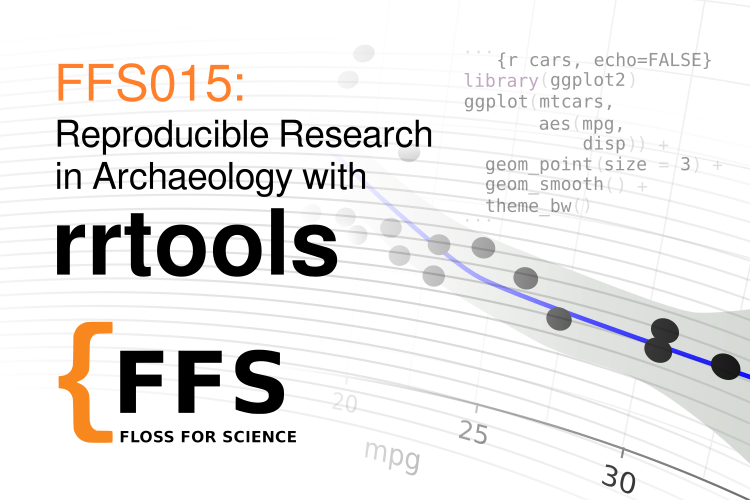
EP015 Reproducible Research in Archaeology with rrtools
Outline
For episode 15, we interview the Associate Professor of Archaeology Ben Marwick. We start our discussion with an overview of some FLOSS tools he uses and how much FLOSS are used in archaeology. He shares with us his experience in regard to working completely in the open with GitHub and his hope that open science will become the norm in the future. We also discuss about rrtools and his propositions on how to greatly improve the reproducibility of science. As a closing though he shares with us his arguments why early career researchers should invest time to learn and transition to FLOSS tools.
About Ben Marwick:
Ben Marwick is an Associate Professor of Archaeology at the University of Washington, Seattle. His other local affiliations include the eScience Institute, the Burke Museum, the Center for Statistics and Social Sciences, the Quaternary Research Center, and the Southeast Asia Center. Ben’s main research activities combine models from evolutionary ecology with analyses of archaeological evidence to investigate past human behaviour. Specific interests include the hominin colonisation of mainland Southeast Asia, forager technologies and ecology in Australia, mainland Southeast Asia and elsewhere. He also analyses how archaeology engages with local communities and popular culture. Ben has a special interest in techniques and methods for reproducible research, especially using open source software. To support this, he has lead the development of the rrtools package for the R programming language, which simplifies many of the tasks of writing a reproducible manuscript.
Links
- rrtools: Tools for Writing Reproducible Research in R
- Marwick, B. J Archaeol Method Theory (2017) 24: 424. https://doi.org/10.1007/s10816-015-9272-9
- Marwick B, Boettiger C, Mullen L. 2018. Packaging data analytical work reproducibly using R (and friends) PeerJ Preprints 6:e3192v2 https://doi.org/10.7287/peerj.preprints.3192v2
- Eglen SJ, Marwick B, Halchenko YO, Hanke M, Sufi S, Gleeson P, Silver RA, Davison AP, Lanyon L, Abrams M, Wachtler T. Toward standard practices for sharing computer code and programs in neuroscience. Nature neuroscience. 2017 May 25;20(6):770.
Listen to this episode here or add our rss feed to your favourite podcast application.









